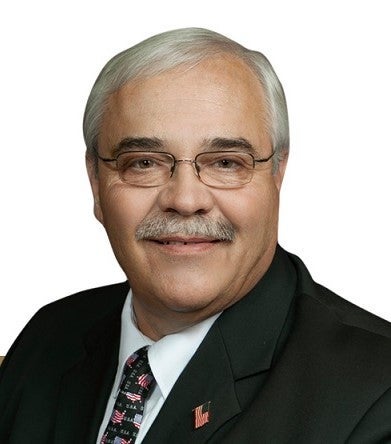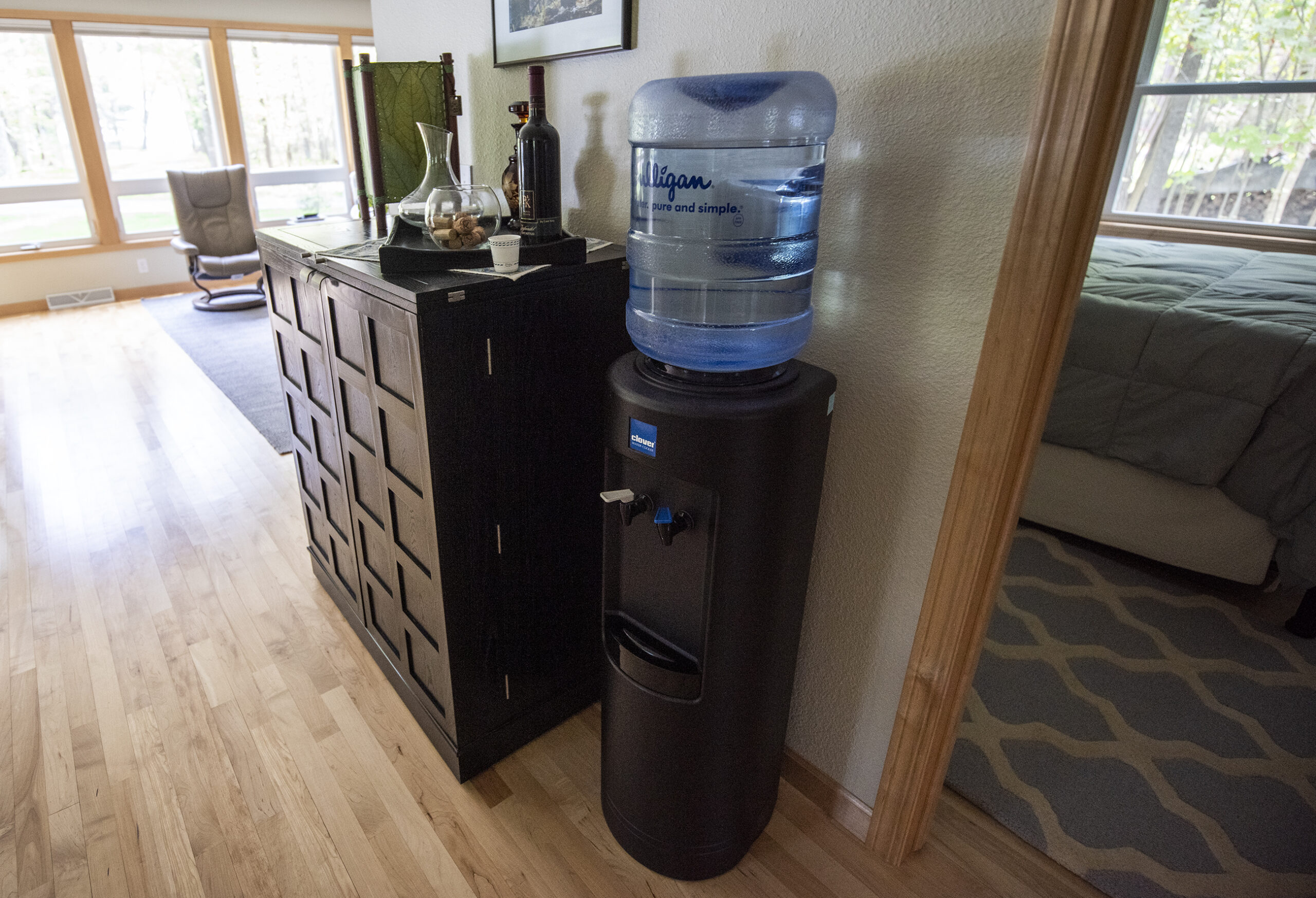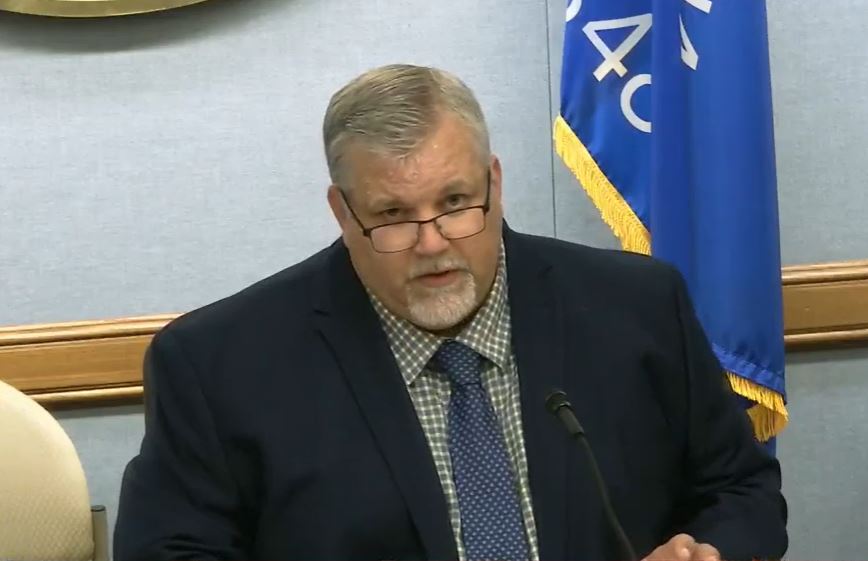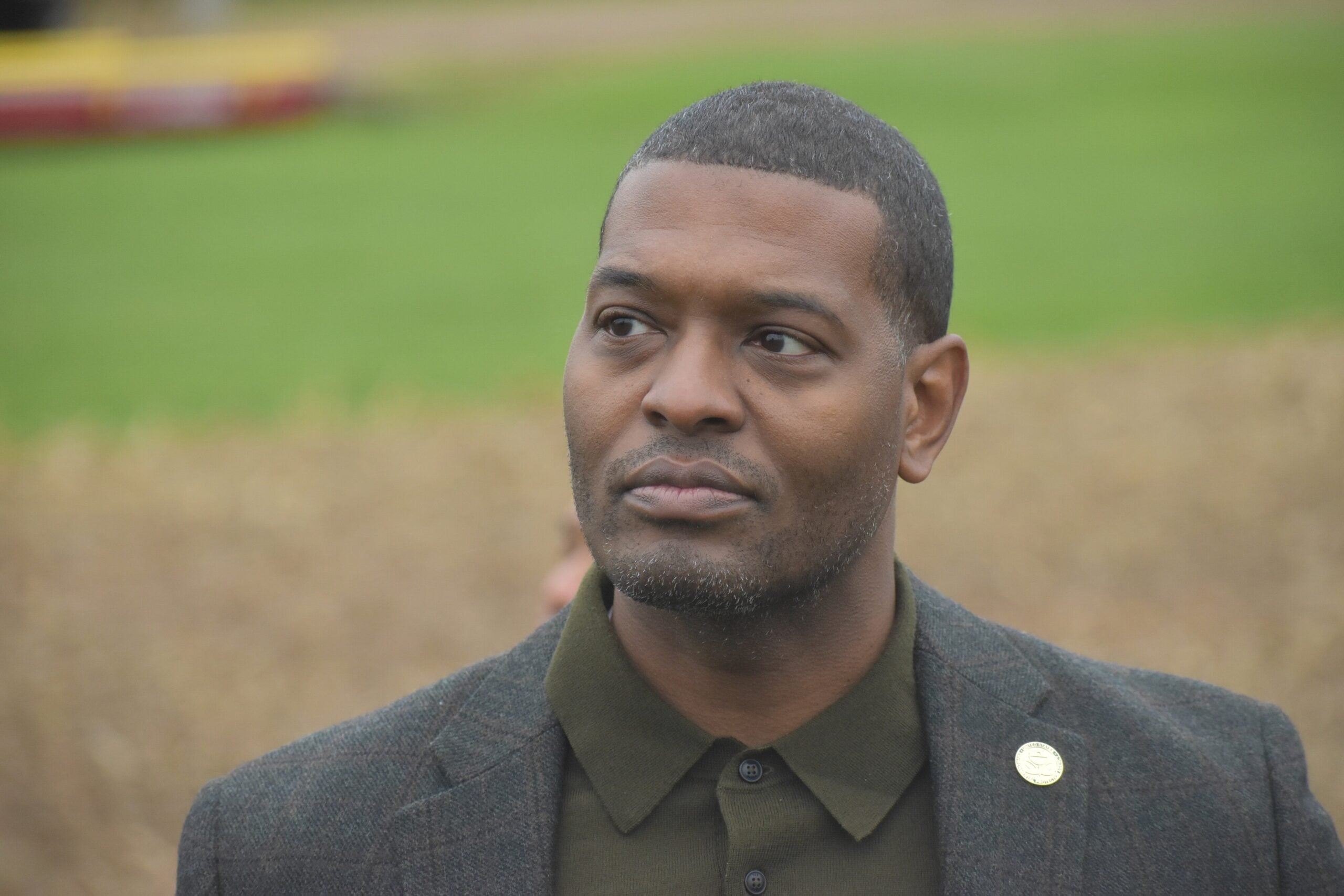Amid leadership turnover at Wisconsin’s environmental agency and distrust in drinking water, a Northwoods legislator says the state should take incremental policy steps to address concerns like toxic PFAS chemicals.

State Rep. Jeff Mursau, R-Crivitz, leads the state Assembly’s Committee on Forestry, Parks and Outdoor Recreation. During a recent appearance on WPR’s “The Morning Show,” Mursau said Democrats and Republicans can find common ground on environmental issues.
News with a little more humanity
WPR’s “Wisconsin Today” newsletter keeps you connected to the state you love without feeling overwhelmed. No paywall. No agenda. No corporate filter.
“Everybody wants clean water. Everybody wants clean air,” he said. “How we reach those goals may be a little bit of a challenge, but in my whole time in the Legislature, we aren’t going to get a big, big something done. We need to work at it a little bit at a time and kind of take baby steps.”
Among the top issues facing Wisconsin’s environment are pollution and management of the wolf population, Mursau said. He discussed those and other concerns in a wide-ranging interview with “The Morning Show.”
The following was edited for brevity and clarity.
Water quality
Kate Archer Kent: You’re the lead author of a proposal in the Assembly that would direct how the state spends $125 million to address toxic PFAS chemicals. How do you rate or list your priorities on where this money should be spent?
Jeff Mursau: My priorities have been and always will be people’s drinking water — whether it comes out of a municipal well, whether it comes out of their own private well — they need to have clean water to drink. That is where the money should be spent and not go off on different situations where there may be different chemicals.
My whole thing is the (PFAS and similar chemicals) that have been generated from the firefighting foam, particularly in my area… Getting clean water and the testing that the people need (are priorities), because I hear all the time that folks with their wells say, “I had to pay $500 or $600 to have a test done,” and some people don’t have those dollars and so they haven’t done it. Then, if they have a problem, help them get a grant to either put in a new well, put in a filtration system or give them the clean water that they need.
KAK: Attorney General Josh Kaul appeared on our program recently and raised concerns with the proposal. He said, “The DNR’s ability to remedy PFAS contamination is going to be limited, and that’s bad because it makes it harder to clean up PFAS contamination, but also that the companies that made huge amounts of money by producing and marketing PFAS, that’s who should be paying to clean this up. Limiting their liability means shifting that responsibility onto the taxpayers. And that is the last thing I want to see is taxpayers being required to foot the bill for PFAS contaminations.” What do you think of the attorney general’s concerns?
JM: I don’t disagree with the attorney general. He is correct that the companies that are responsible should be held accountable for what they did and the contamination that they made.
But as we’ve seen in other states, with 3M over in Minnesota, it took years in court to get those settlements made… We need to get people’s water cleaned up now and those dollars are going to be spent by the state. Those dollars, through years of litigation, will come back in to replenish those dollars that are spent.

KAK: Is the DNR responding with enough urgency to water quality concerns in the state?
JM: I believe they are. But the thing is, a lot of the stuff has to go through the Legislature. And sometimes that is a challenge because there are so many other concerns… You try to help get the legislation done by allowing everybody to have a little piece of the pie, so to speak.
But in the end, sometimes there’s a lot of people that are unhappy and consequently, when it gets to the Capitol and you get into the building and people are not happy with this or that or whatever, it changes how people are seeing the legislation that’s in front of them.
KAK: You have people like in Peshtigo who have been drinking bottled water for nearly six years. You just mentioned litigation with large companies could take years to play out. Why limit the DNR’s power to order testing?
JM: We want to test and get this problem (addressed), because that’s the problem we have at hand and that’s the contamination that is in all the wells that are in the Peshtigo area. Let’s deal with this problem first and get that cleaned up and not go off on a different road and start testing for everything else that may be out there. There’s a lot of different chemicals that could be, but we know that the contamination right now is the PFAS and that is the thing that is in people’s wells. And that’s what I am very concerned about.
READ MORE: Town of Peshtigo sues Tyco and 100 other companies for damages linked to PFAS pollution
Natural Resources Board turnover
KAK: The state Senate rejected confirmation of four of Gov. Tony Evers appointees. Are you concerned about the amount of turnover on the Natural Resources Board?
JF: I’m concerned that there was a number of people that were on the board that were really good people that were working very hard, doing things that are important to everybody in the state. And they left probably because of concerns about the way things were going and the way things were brought up on the board. It’s important that we get people that are in a neutral position.
I’m concerned with a lot of things that are coming up down the road, things like deer farms and chronic wasting disease. There’s a lot of decisions that are going to be made that are important and we need to have good people.
KAK: Isn’t neutral in the eye of the beholder, though?
JM: I’ll rephrase that. Not necessarily neutral. That somebody has a good common sense on the way things should be done and the way that things should look in the end.
Resignation of Adam Payne
KAK: Let’s get your reaction to DNR Secretary-designee Adam Payne resigning after less than a year on the job. What are your thoughts?
JM: I thought we had a great secretary in Secretary Payne. His comments were that he was leaving to spend more time with some of his family members. I can’t blame a person for that because family is most important.
He had a great insight on a lot of different issues that we were working on, and we worked with him on PFAS and things like that. I’m sorry to see him leave and I’m anxious to see who our next secretary is.
KAK: You say he had great insights on these pressing environmental issues. What credentials to you are most important for the secretary to have?
JM: One of the most important things is dealing with hunting and wildlife as somebody that is active in the outdoor sport. It’s important that they understand what goes on in the hunting world and the outdoor world, as well as being able to deal with issues like PFAS.

New wolf management plan
KAK: The Natural Resources Board approved a wolf management plan without a population goal and in previous plans had set a goal of 350 wolves. What do you make of the new management plan?
JM: I think we have to have a population goal. I know when we count the wolves, they count packs and packs only. We know in the end, everybody will say the same thing, that the lone wolves that get kicked out of the packs are probably the same amount of packs that we have. As we count the population, we don’t count the lone wolves outside the packs. So it ends up that those packs or the wolf population could be doubled from what we have.
It’s important that we take and do a proper count on the wolves and the wolf population and set a population goal accordingly.
KAK: How many wolves should the state allow to be hunted?
JM: I can’t say that for sure unless we count the whole group of wolves. I think (the count) said we’re upwards of 1,000 wolves, but we could have almost twice that if they count all the wolves that are out there and count the lone wolves. Things won’t happen until there ends up being some type of critical accident when a wolf attacks somebody. And that could be coming because I know there’s people up in my area that when they go on their hikes and their walks, they carry guns with them because they do see animals in the woods like wolves walking around.
Wisconsin Public Radio, © Copyright 2026, Board of Regents of the University of Wisconsin System and Wisconsin Educational Communications Board.






